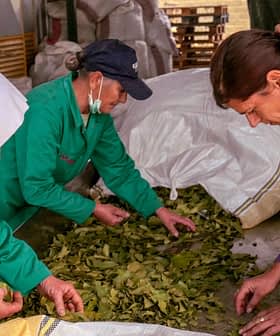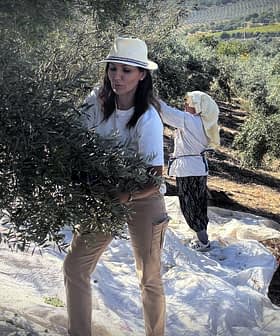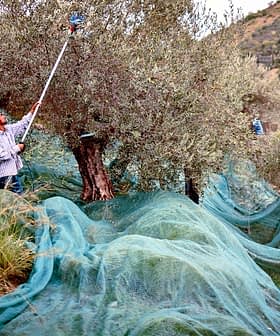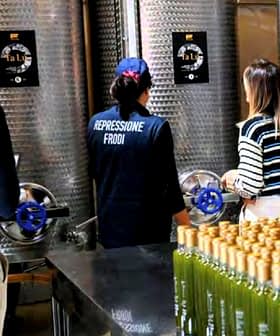Terroir, Organic Farming Yield Award-Winning Results for Sicilian Farmer
Maria Piscopo, a former communication specialist, is advocating for small-scale, organic farming in Agrigento, Sicily, to counter the rise of intensive olive farming. Using sustainable practices, Piscopo has planted 22 hectares of olive groves, focusing on native Sicilian olives and producing high-quality extra virgin olive oil while emphasizing the importance of organic production, climate conditions, and quality preservation.
In the picturesque Sicilian region of Agrigento, a former communication and event coordination specialist is using her talents to advocate for small-scale, organic farming in a world where intensive olive farming is rising.
“Naru was born from the idea of enhancing a splendid property purchased by my father more than 20 years ago… who works as a doctor but has always had a great passion for nature and the products it gives us,” said owner Maria Piscopo.
“I began acquiring new lands and planting olive trees, immediately choosing the path of organic farming and sustainability,” she added.
I’m not interested in large-scale production because it compromises quality.
Since embarking on this project in 2016, Piscopo has planted 22 hectares and achieved an annual production of about 6,000 liters of organic extra virgin olive oil.
The company’s olive groves mainly comprise Biancolilla and Nocellara del Belice olives.
“I chose them because they are typical Sicilian olives, native to the region,” she said. “Biancolilla produces an aromatic olive oil that is very delicate and slightly sweet. On the other hand, Nocellara del Belice, typical of the Belice Valley in western Sicily, has very fleshy fruit and produces a very intense olive oil.”
See Also:Producer Profiles“There are approximately 500 varieties of Nocellara, and in my humble opinion, the one from Belice has a superior quality compared to the others,” Piscopo added.
The climate and geography of a region are crucial in determining the quality and healthy attributes of its olives. For Piscopo, Agrigento’s location 600 meters above sea level in southern Sicily is particularly advantageous.
“Naro, located in the province of Agrigento, enjoys a typically Mediterranean climate,” she said. “Overlooking the sea, Naro benefits from the sea breeze at a slightly lower temperature, about four degrees cooler; this contributes to giving the olive trees and their fruit a particular aroma.”
Like any Mediterranean climate, Piscopo said Agrigento has hot, dry summers and mild, wet winters.
“The high summer temperatures and abundant sunlight favor photosynthesis, stimulating the growth of olive trees and the production of high-quality olives,” she said. “The hot and dry climate of Sicilian summers contributes to uniform and healthy fruit ripening, enhancing the organoleptic characteristics of the olives and, consequently, the olive oil produced.”
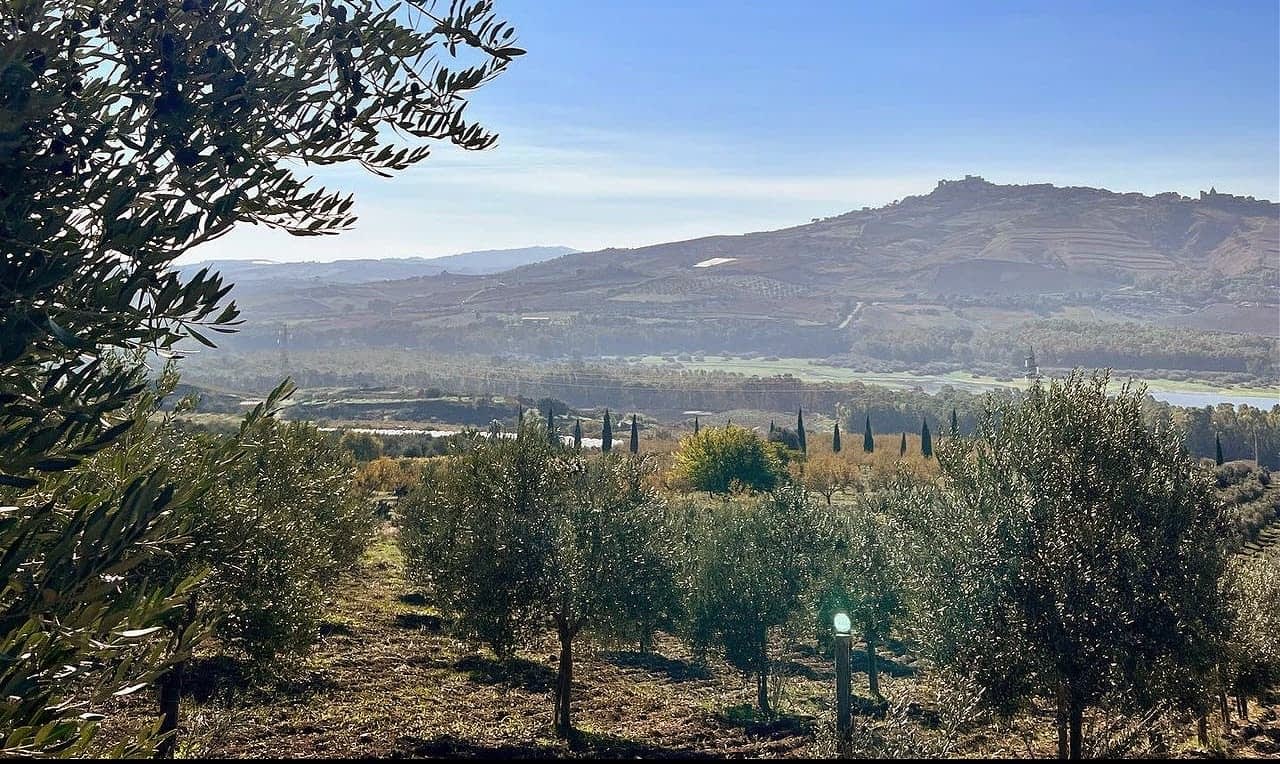
Climate, soil and native olive varieties yield Naru’s award-winning organic blends. (Photo: Naru)
“The absence of high humidity during the summer significantly reduces the risk of fungal infections and other diseases that can affect olive trees, such as olive leaf spot and olive fruit fly,” Piscopo added. “The climatic conditions of Naro are ideal for the production of high-quality extra virgin olive oils, with a high polyphenol content, which contributes to the antioxidant properties of the olive oil.”
While Agrigento’s climate is well suited to olive cultivation, Piscopo cited climate change as a significant issue, along with the annual challenges of careful fertilization and pruning to achieve maximum yield and quality.
“Drought is a significant issue in Sicily, and it is part of the larger climate change occurring,” she said. “While there has always been a drought in previous years, it was certainly not at the levels we are experiencing today.”
Still, olives are a resilient crop, and Piscopo’s groves are planted in well-drained soils, which, she said, helps reduce the consequences of drought.
“At higher altitudes, atmospheric moisture is slightly higher than in the surrounding plains,” she said. “This helps maintain higher relative humidity, thereby reducing evaporation and water consumption by the trees during periods of drought.”
Piscopo believes improving soil health and following sustainable best practices are tools farmers can use to counteract the impacts of climate change.
“Naru focuses on sustainable agricultural practices prioritizing soil health,” she said. “This includes using organic fertilizers and compost to enhance soil fertility naturally rather than relying on synthetic chemicals that can degrade soil quality over time. Maintaining healthy soil ensures that our olive trees receive optimal nutrition and are less susceptible to diseases and pests.”
“Biodiversity promotion is central to our farming approach, which creates natural habitats that support beneficial insects, birds and other wildlife,” Piscopo added. “This biodiversity helps to maintain ecological balance, improve pollination rates and remove the need for chemical interventions.”
Timing the harvest, which has become far more challenging in recent years partially due to the impacts of climate change, has been another significant challenge for the producer.
“Picking the olives at the optimal ripeness is crucial for producing high-quality extra virgin olive oil,” she said. “Protecting the product from oxidation and light during storage and packaging to preserve its freshness is paramount, achieved through regularly cleaning essential equipment.”
Quality for any award-winning olive oil producer begins with the olive on the tree. From then on, quality can only be reduced during the harvesting and milling. As a result, Piscopo said harvesting is the most crucial step of the process at Naru.
“Harvesting is timed carefully to ensure olives are picked at the optimal stage of ripeness,” she said. “This stage varies depending on the desired characteristics of the olive oil (e.g., fruity, robust, or mild).”
Piscopo insists on a traditional harvest, with olives picked by hand or electric shakers to remove them from the tree and transport them to the mill quickly but delicately to preserve the olives and avoid stressing the tree.
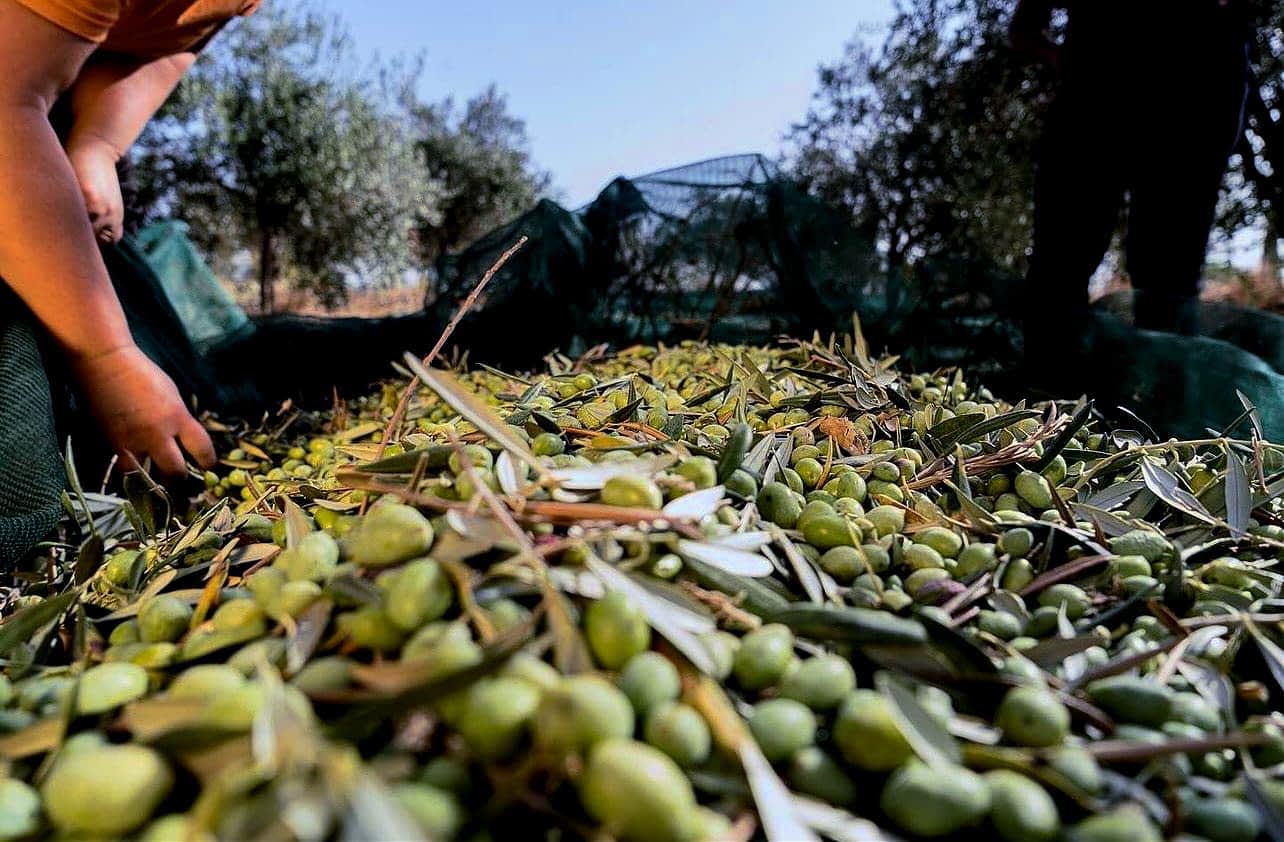
Quality begins with the olives, so Piscopo pays meticulous attention to the harvest timing and sorting the fruit. (Photo: Naru)
“Operators use nets and then move the olives into very large bins that contain olive mats,” she said. “After approximately a couple of hours of work, we immediately go to the mill to start pressing (while the rest of the team continues harvesting), thus avoiding the fermentation of the olives, which would greatly damage the quality of the final product. Therefore, we proceed with harvesting and pressing about three times daily.”
Milling the olives within hours of the harvest helps minimize oxidation and preserves the flavors and aromas of the resulting oil.
“Modern olive mills often use efficient extraction methods, such as centrifugation, to extract oil while minimizing oxidation,” Piscopo said. “Controlling the temperature during processing is essential to prevent degradation of the oil’s flavors and aromas. Cold-pressing methods or processing at controlled temperatures [below 27 ºC] help retain the oil’s quality.”
“This helps preserve the volatile compounds and nutrients present in the olives, maintaining the oil’s flavor, aroma and nutritional properties,” she added.
Once the extra virgin olive oil has been produced, it is stored in stainless steel tanks and bottled on demand.
“The olive oil is never pre-packaged,” Piscopo said. “Each time a customer places an order, the chosen packaging type is filled, and the order is immediately shipped. This ensures that the flavor of the oil remains consistent throughout the year, preserving all its characteristics, which would not be possible if the oil were pre-packaged.”
While Piscopo believes that organic olive oil production is the ethically right thing to do, she also thinks it helps her brand stand out.
“I adhere to what nature provides and oppose the use of any fertilizers that may increase production but do not guarantee quality or consumer health protection,” she said. “I’m not interested in large-scale production because it compromises quality.”
“This single-origin approach ensures traceability and authenticity, allowing consumers to know exactly where their olive oil comes from,” Piscopo added.
Along with organic production, Piscopo has embraced her role as a female-led brand in an industry still dominated mainly by men.
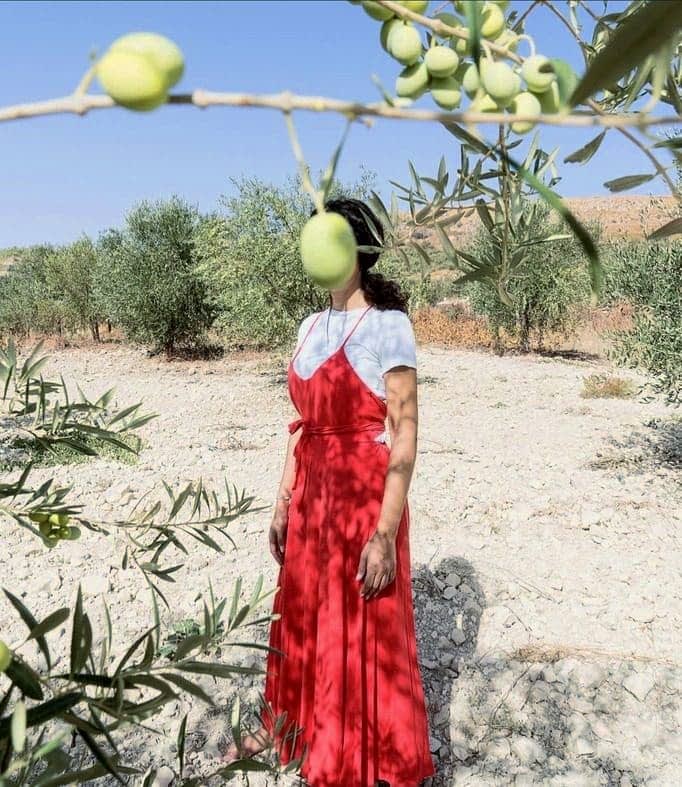
Maria Piscopo has spent eight years transforming her father’s grove into an award-winning brand. (Photo: Naru)
“Another strong point of my product is that it is a women-led company,” she said. “I have always considered this a significant strength. Fortunately, many women are in the olive oil industry, but I believe there should be more.”
“In my opinion, the presence of women in this predominantly male environment has brought many advantages and attention, and it’s something that makes me very proud,” Piscopo added.
Earlier this year, Piscopo’s meticulous efforts paid off when its debut entry to the NYIOOC World Olive Oil Competition, the world’s largest olive oil quality contest, earned a Silver Award.
“Winning the NYIOOC fills me with joy and honor,” she said.”It was immensely satisfying for me to achieve this award. All the sacrifices and improvements made by me and my very small team led to this result.”
Along with the agronomic aspect, Piscopo said that successfully marketing in a highly competitive field is also challenging, especially for small producers.
“I work to highlight the authenticity of my product,” Piscopo said. “I have worked hard to establish Naru’s identity without any external assistance, dedicating time to consumers and customers, building a network of people who believe in me and Naru every year.”
“From the beginning, I aimed for a strong market position for my product, and I believe I have achieved that,” she added. “However, I always think there’s room for improvement year by year, which has been the case with Naru. I have worked hard to enhance its quality.”
Piscopo added that social media has become a significant part of her marketing efforts. It allows her to showcase Naru’s products and awards while educating consumers about climate change and cooking with olive oil.
“I’ve also emphasized history and tradition,” she said. “Through social channels, I try in my small way to educate about climate change and the measures I adopt to limit its effects. I focus on sustainability and agricultural practices aimed at conserving and respecting the environment, a cornerstone of my agricultural business.”
“I’ve created collaborations and partnerships with people in the food sector to strengthen the product’s image,” Piscopo added. “I’ve opted for direct online sales through the Naru website. I participate in industry events and fairs to meet consumers directly, let them taste the product, and tell the story of my still young company.”
Looking to the future, Piscopo said she plans to build a dedicated mill for the company, providing further control of the production process and a new headquarters.
“There is an ancient farmhouse that I intend to transform into the permanent headquarters of the company,” she said. “I aim for this facility to be self-sustaining and self-sufficient in terms of water, electricity and heating, fully respecting the environment and being 100 percent ecological.”


